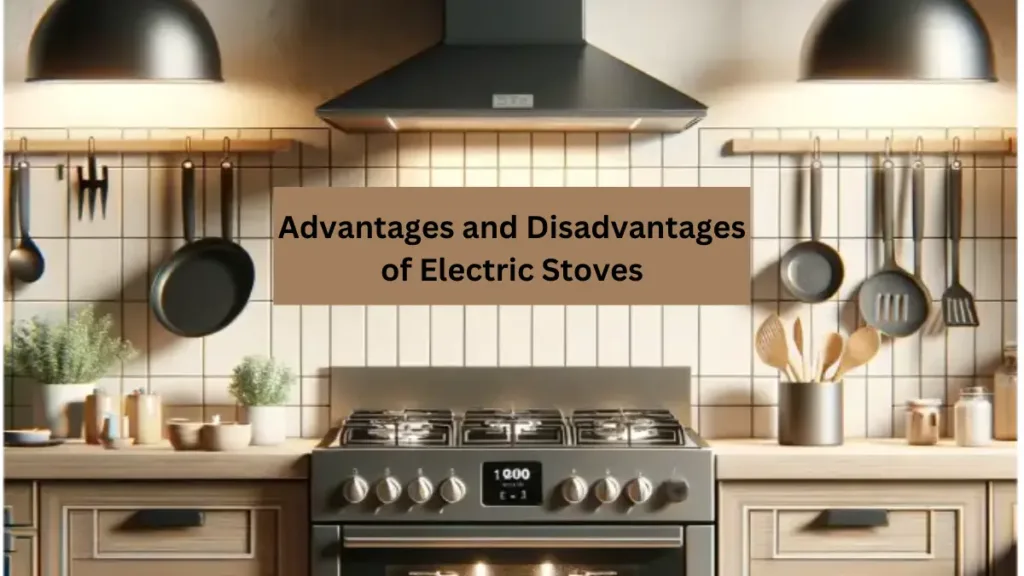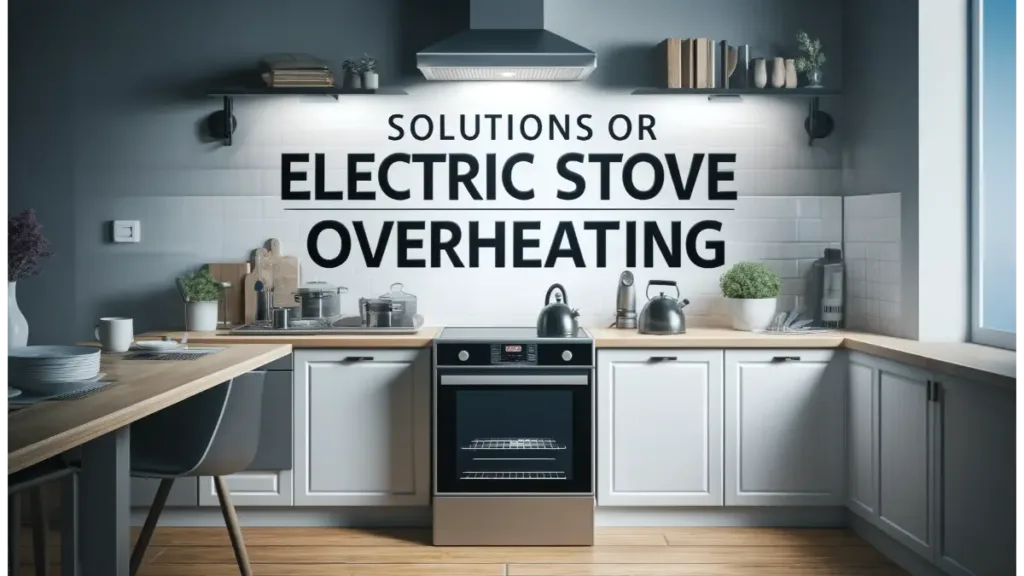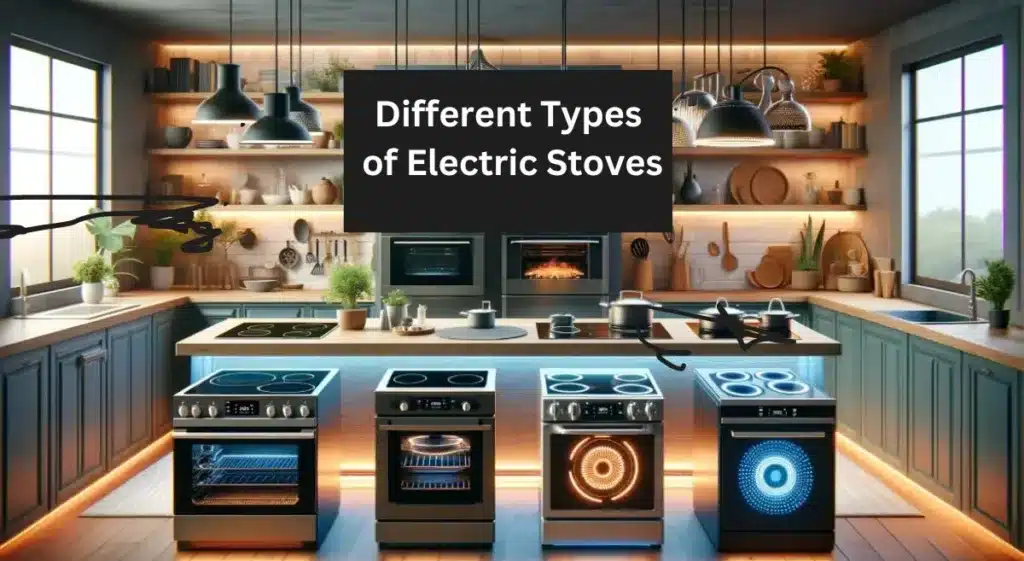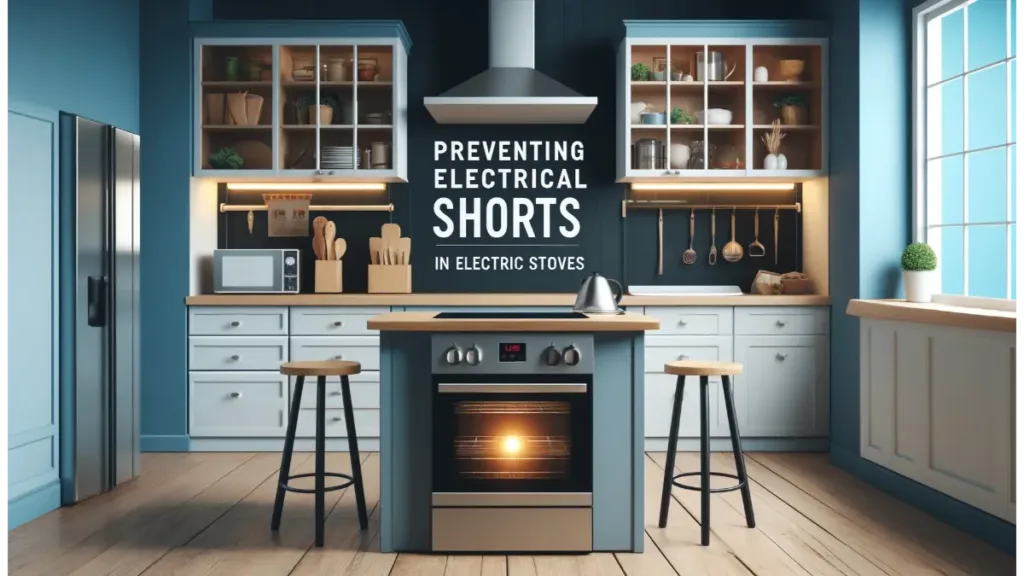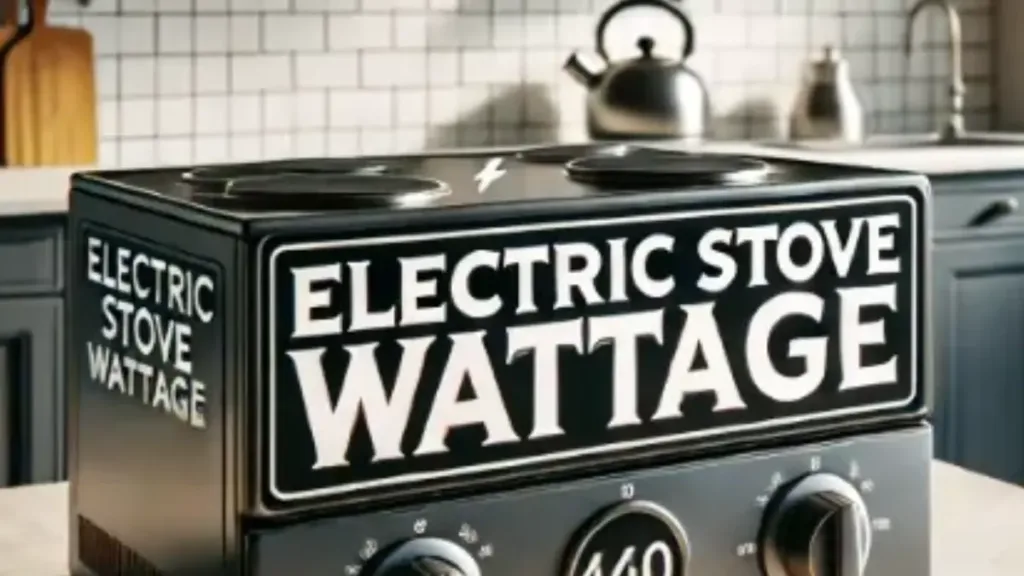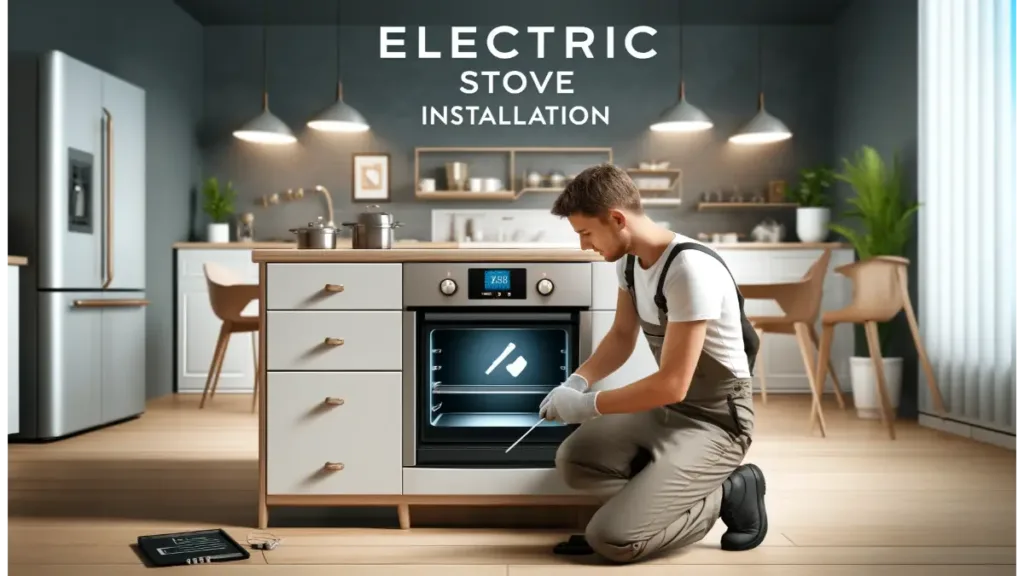Electric stoves are becoming a popular choice in many households. Did you know that over 60% of new homes now feature electric stoves? This rise in popularity is due to their sleek design and advanced features. However, like any appliance, they come with both advantages and disadvantages that homeowners should consider.
Knowing the advantages and disadvantages of electric stoves is important for all consumers. It ensures that you invest in an appliance that fits your needs and lifestyle. This knowledge can save you money and prevent future inconveniences.
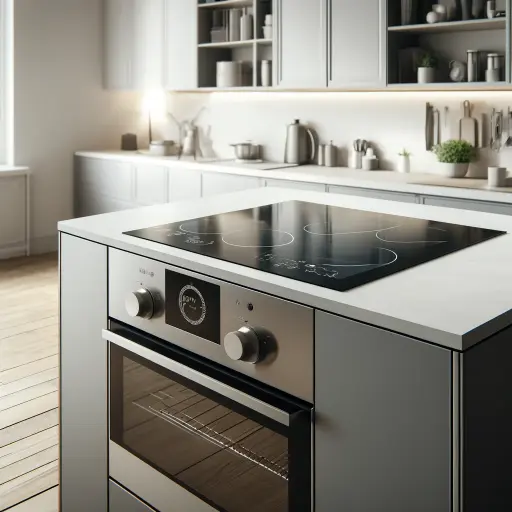
In this post, we’ll explore the various advantages and disadvantages of electric stoves. You’ll learn about their energy efficiency, maintenance tips, and environmental impact. We’ll also compare electric stoves to gas stoves, discussing which might be better suited for different cooking styles and household needs. By the end of this article, you’ll have a comprehensive understanding of whether an electric stove is worth it for your home.
How Electric Stoves Work?
Electric stoves use electricity to generate heat. When you turn on the stove, electrical current flows through heating elements, which then heat up and transfer heat to your pots and pans for cooking.
General Types of Electric Stoves
1. Coil Stoves:
Coil stoves have visible, coiled metal heating elements that directly heat the cookware. They are typically more affordable but can be harder to clean.
2. Radiant Smooth-Top Stoves:
These stoves have a flat, glass-ceramic surface with heating elements beneath. They offer a sleek, modern look and are easy to clean.
3. Induction Stoves:
Induction stoves use electromagnetic fields to heat the cookware directly. They are highly energy-efficient and offer precise temperature control but require magnetic cookware.
Electric stoves offer numerous benefits that make them a popular choice in many households.
Let’s explore these advantages in detail.
10 Advantages of Electric Stoves
Efficiency and Performance
- Even Heat Distribution: Electric stoves distribute heat uniformly across the cooking surface, which is essential for recipes requiring precise temperatures.
- Precise Temperature Control: Modern electric stoves offer precise temperature controls ideal for low-heat cooking.

Easy to Clean
- Easy Wipe Down: The flat, glass, or ceramic surface can be easily wiped clean with a damp cloth or sponge.
- Stain Resistance: The smooth surface is less likely to retain stains and spills, maintaining a clean appearance.
- Simplified Maintenance: Cleaning is less time-consuming and more straightforward.
- Less Accumulated Grease: The design minimizes areas where grease and food particles can accumulate.
Energy Efficient
- Less Energy Wastage: Electric stoves transfer energy directly to the pot or pan, minimizing heat loss and improving energy efficiency.
- Faster Cooking Times: Efficient heat transfer often results in faster cooking times, saving both energy and time.
- Optimized Energy Usage: Programmable settings allow users to set cooking times and temperatures precisely, avoiding energy wastage.
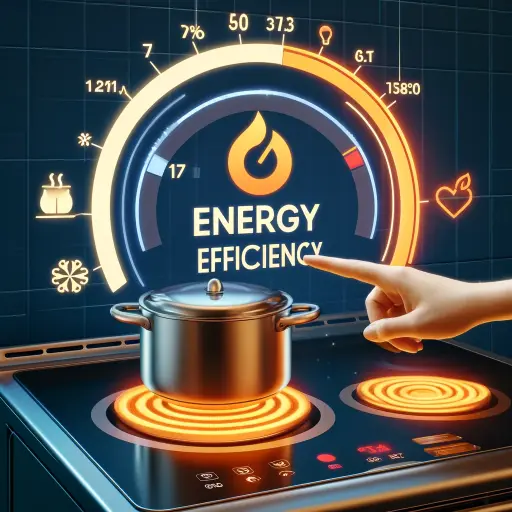
Cost-Effective
- No Need for Gas Lines: Installation is generally cheaper since there’s no need to connect to a gas supply.
- DIY Friendly: Many electric stoves can be installed without professional help, saving on labor costs.
- Lower Utility Bills: In regions where electricity is cheaper than gas, electric stoves can lead to significant savings on utility bills.
- Long-term Savings: Over time, the energy efficiency of electric stoves can result in lower overall energy consumption.
Safety Features
- Automatic Shutoff: Many electric stoves come with an automatic shutoff feature, which turns off the stove if it has been on for too long or if it detects overheating.
- Child Lock: This feature prevents children from accidentally turning on the stove.
- Indicator Lights: These lights let you know when the burners are still hot, reducing the risk of burns.
- No Open Flame: Eliminates the risk of fire from open flames, making it safer for households with children and pets.
Modern Features
- Induction Technology: Induction stoves heat up more quickly than traditional electric or gas stoves, reducing cooking times. Induction technology uses electromagnetic fields to heat cookware directly, making it more energy-efficient.
- Touch Controls: Touch controls are automatic and easy to use, providing a modern cooking experience. Digital touch controls offer precise temperature and time settings, enhancing cooking accuracy.
Smart Home Integration
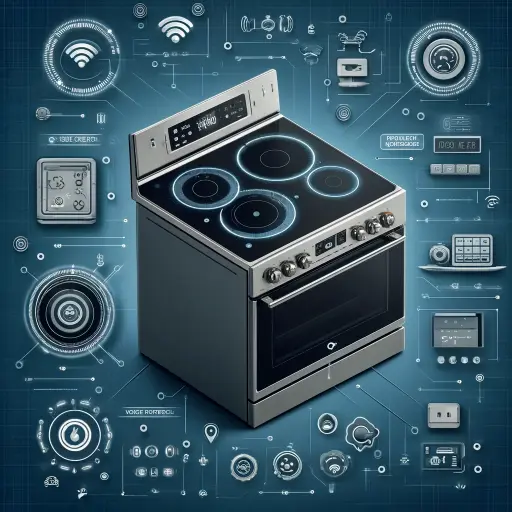
- Wi-Fi Connectivity: Allows you to control your stove remotely via smartphone apps. You can adjust temperatures, set timers, and even get notifications when your food is ready.
- Voice Control: Some electric stoves are compatible with voice assistants like Amazon Alexa or Google Assistant, letting you control your stove with simple voice commands.
- Smart Sensors: These can monitor cooking progress and automatically adjust settings for optimal results.
Environmental Benefits
- Renewable Energy Options: When powered by renewable energy sources like solar or wind, electric stoves have a much lower environmental impact.
- Reduced Carbon Footprint: Using electricity over gas can help reduce greenhouse gas emissions, contributing to a cleaner environment.
- Healthier Indoor Air: Electric stoves do not produce harmful emissions or pollutants, leading to better indoor air quality.
- Lower Health Risks: Reduced exposure to emissions can decrease health risks associated with gas stoves, such as respiratory issues.
Aesthetic Appeal
- Sleek Design: Electric stoves often feature sleek, contemporary designs that enhance the aesthetics of any kitchen.
- Compact Models: Available in various sizes, including compact models suitable for small kitchens or apartments.
- Variety of styles: Electric stoves come in different colors and finishes, allowing homeowners to choose a style that matches their kitchen decor.
- Design Flexibility: The smooth surface and minimalist design offer more flexibility in the kitchen layout and design.
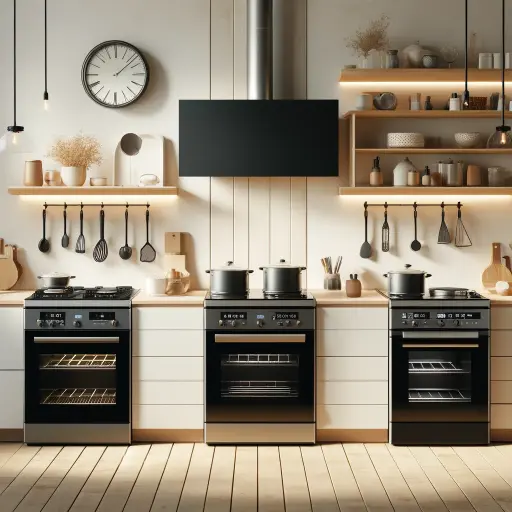
User Experience and Practicality
- Cooking Experience: Electric stoves offer a unique cooking experience compared to gas stoves.
- Simmering and Boiling: Electric stoves provide consistent heat, making them excellent for simmering sauces or boiling pasta.
- Baking and Roasting: Electric ovens often have more even heat distribution, which is ideal for baking cakes and roasting meats.
Disadvantages of Electric Stoves
Initial and Long-Term Costs
- Cost Comparison: On average, electric stoves cost more upfront. High-end models, especially those with induction technology, can be particularly pricey.
- Electricity Price Dependency: The cost of running an electric stove depends heavily on electricity prices.
- Impact of Fluctuating Prices: If electricity prices rise, the cost of using an electric stove can increase significantly. This can affect overall household expenses.
Safety Concerns
- Burn Risks from Hot Surfaces: The stove surface can remain hot after use, posing a burn risk. Click here to follow electric stove safety guidelines.
- Electrical Malfunctions: Like any electrical appliance, electric stoves can have malfunctions, which might lead to safety hazards.
Power Dependency
- Wattage Requirements: Ensure your electrical system can handle the stove’s power needs.
- Circuit Breaker Compatibility: A dedicated circuit breaker might be necessary to prevent overloading your electrical system.
- Electricity Outages: Electric stoves are completely dependent on electricity, making them unusable during power outages.
- Reliability Issues: In areas with frequent power cuts, relying on an electric stove can be inconvenient.
Cookware Compatibility
- Limited Cookware Options: Induction stoves require specific magnetic cookware, which can be expensive and not always available.
- Additional Cost: Purchasing compatible cookware adds to the overall cost of using an induction stove.
Slow Cooling
- Prolonged Cooling Time: Electric stoves take longer to cool down after being turned off, which can be a safety hazard.
- Accidental Burns: The residual heat can cause accidental burns if not careful.
Limited Control
- Slower Adjustments: Temperature adjustments are not as immediate as with gas stoves, making it harder to quickly change cooking conditions.
- Lag in Response: The lag between adjusting the control and the actual temperature change can affect cooking precision.
Comparing Features of Electric Stoves with Gas Stoves
| Advantage | Electric Stoves | Gas Stoves |
|---|---|---|
| Easy to Clean | Smooth surfaces are easy to wipe down | Grates and burners require more effort to clean |
| Temperature Control | Precise, steady heat adjustments through knobs | Immediate, precise control with visible flames |
| Safety | No open flames, reducing fire risk | Requires careful handling of open flames |
| Energy Efficiency | High efficiency, especially with induction models | Generally less efficient due to heat loss |
| Heat Emission | Emits less heat into the kitchen | Emits more heat, which can warm the kitchen |
| Cooking Control | Consistent heating for even cooking | Superior control for quick temperature changes |
| Usability During Outages | Not usable during power outages | Can be used during power outages |
| Cookware Flexibility | Requires flat-bottomed cookware for best results | Compatible with a wider variety of cookware |
| Environmental Impact | Can be lower if powered by renewable energy | Depends on the availability and use of natural gas |
Should You Choose an Electric Stove?
Is an Electric Stove the Right Choice for You? Is an Electric Stove Worth It?
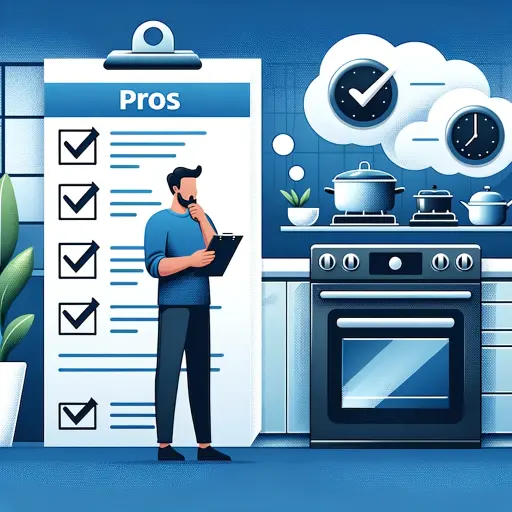
After exploring the advantages and disadvantages of electric stoves, it’s clear that they offer several compelling benefits. The numerous advantages, such as ease of cleaning, precise temperature control, and enhanced safety features, make electric stoves a highly desirable choice. They are particularly beneficial for families due to the lack of open flames and advanced safety options like automatic shutoff and child locks. Additionally, their energy efficiency can lead to significant savings on your utility bills over time.
However, it’s important to consider a few drawbacks. Electric stoves can take longer to adjust temperatures and are dependent on electricity, meaning they won’t work during power outages. They also require flat-bottomed cookware.
Despite these cons, the overall advantages of electric stoves often make them a valuable investment. If you prioritize a clean, safe, and energy-efficient cooking experience, an electric stove is an excellent choice for your kitchen. Ultimately, your choice should be based on your specific cooking habits, kitchen setup, and personal preferences.
Conclusion
Choosing an electric stove depends on your specific needs and preferences. If you prioritize energy efficiency, safety, and modern features, an electric stove could be a great fit for your kitchen. Evaluate your cooking habits, budget, and home setup to make the best decision. If you decide on an electric stove, look for models with high energy efficiency ratings and advanced safety features to get the most benefits. Visit your local appliance store or browse online to compare different models and read user reviews before making your purchase.
FAQs
1. Are electric stoves more efficient than gas stoves?
Yes, electric stoves, especially induction models, are more efficient as they convert more energy into heat with less energy loss compared to gas stoves.
2. Do electric stoves use more electricity than other kitchen appliances?
Electric stoves can be energy-efficient, especially induction models, but usage depends on how often and what you cook.
3. How long do electric stoves last?
With proper care, electric stoves can last 13-15 years on average.
4. Do electric stoves require special cleaning products?
No, you can use regular non-abrasive cleaners for smooth-top models. Avoid harsh chemicals that can damage the surface.
5. Can electric stoves be repaired easily?
Many parts, like burners and control knobs, can be replaced. For major issues, it’s best to consult a professional.
6. Can electric stoves provide the same cooking results as gas stoves?
Yes, electric stoves can provide similar cooking results, though they may require adjustments in cooking techniques due to different heating characteristics.
7. What are the best electric stove brands?
Popular brands include GE, Whirlpool, Samsung, and Bosch, known for reliability and performance.
8. Are there portable electric stoves?
Yes, there are single and double-burner portable electric stoves ideal for small kitchens or travel.
9. Are electric stoves good for baking?
Yes, electric ovens typically provide even heat distribution, making them excellent for baking.
10. Can I use aluminum cookware on an electric stove?
Yes, aluminum cookware works well on electric stoves, but it’s important to use flat-bottomed pans for even heating
11. Are electric stoves noisier than gas stoves?
Electric stoves are generally quieter, though induction models can produce a faint humming noise during operation.

